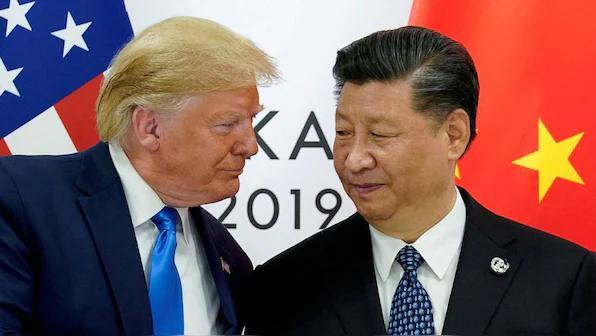
China Refuses to Join Denuclearisation Talks with US & Russia
In a move that has sparked concerns about the future of global nuclear disarmament efforts, China has refused to join trilateral denuclearisation talks with the United States and Russia. The decision comes as a blow to President Donald Trump’s efforts to engage China in the process, with the Chinese Foreign Ministry citing significant differences in nuclear capabilities as the reason for its refusal.
According to a report by Moneycontrol, Chinese Foreign Ministry Spokesperson Guo Jiakun stated that the expectation of China joining the talks was “neither reasonable nor realistic”. This decision has been met with criticism from experts, who argue that China’s refusal could hinder progress towards a nuclear-free world.
The development is a significant setback for the Trump administration, which has been pushing for a comprehensive approach to nuclear disarmament. In recent months, the President has been vocal about the need for a three-way agreement between the US, Russia, and China to tackle the issue of nuclear proliferation.
However, China’s stance is not surprising, given its growing military capabilities and increasing assertiveness in the international arena. The country has been rapidly expanding its nuclear arsenal in recent years, and has been vocal about its opposition to any attempts to constrain its military development.
The US and Russia have been engaged in talks on nuclear arms reduction for several years, with the two countries having signed several agreements aimed at reducing their respective nuclear arsenals. However, the process has been slow and often fraught with tension, with the two countries disagreeing on key issues such as verification and enforcement.
China’s refusal to join the talks is likely to further complicate the situation, with experts warning that the lack of Chinese involvement could undermine the entire process. “China’s refusal to participate in trilateral talks on nuclear disarmament is a major setback for global efforts to reduce the risk of nuclear war,” said Dr. Emma Campbell, a nuclear expert at the University of Oxford. “Without China’s involvement, it is difficult to see how progress can be made on this critical issue.”
The decision is also likely to heighten tensions between the US and China, which have been engaged in a trade war for several months. The US has been critical of China’s military buildup and its human rights record, and has imposed tariffs on hundreds of billions of dollars of Chinese goods.
In response to China’s refusal, President Trump tweeted that the country was “not a reliable partner” and that the US would take a “strong and tough” stance on the issue. The US Secretary of State, Mike Pompeo, also weighed in, stating that China’s decision was “unacceptable” and that the US would continue to push for a comprehensive approach to nuclear disarmament.
Despite the setback, there are still hopes that China will eventually join the talks. The country has been a key player in several international agreements aimed at reducing the risk of nuclear war, including the Nuclear Non-Proliferation Treaty (NPT) and the Comprehensive Nuclear-Test-Ban Treaty (CTBT).
In a statement, the Chinese Foreign Ministry said that China was committed to the goal of nuclear disarmament, but that it would only participate in talks that were “constructive and realistic”. The ministry also emphasized the need for the US and Russia to take concrete steps towards nuclear disarmament, before expecting China to join the process.
The impasse highlights the complex and sensitive nature of nuclear disarmament talks, which require careful diplomacy and a willingness to compromise. While China’s refusal to join the talks is a significant setback, it is also an opportunity for the international community to re-evaluate its approach to nuclear disarmament and to explore new ways of promoting a nuclear-free world.
In conclusion, China’s refusal to join trilateral denuclearisation talks with the US and Russia is a significant setback for global efforts to reduce the risk of nuclear war. While the decision is likely to heighten tensions between the US and China, it also presents an opportunity for the international community to re-evaluate its approach to nuclear disarmament and to explore new ways of promoting a nuclear-free world.
Source:



